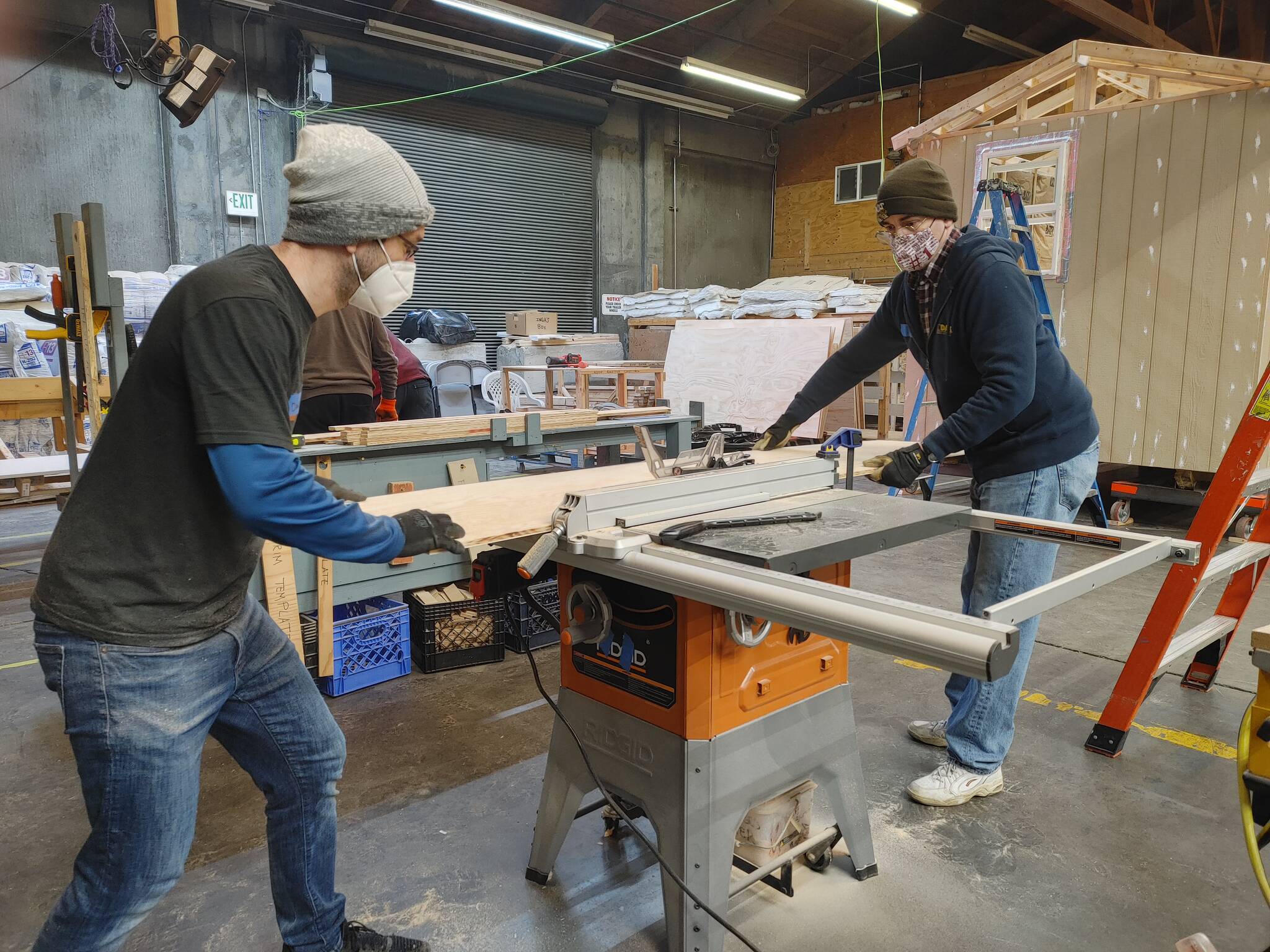Swinging the hammers actually makes a difference, said Mercer Island resident and city councilmember Ted Weinberg.
After putting in three solid hours of morning work, Weinberg’s voice was briefly interrupted by the lunchtime bell inside the Low Income Housing Institute (LIHI) factory in south Seattle on Jan. 15.
It was a well-deserved break for the dozen social impact volunteers who were participating in the Amazon Web Services (AWS) tiny house building project to help those experiencing homelessness in Seattle. Through its “Project Hope, Safety and Warmth,” AWS has gathered about 150 volunteers — including about 40 Islanders — to help complete its 13-week, 35-home village project by the end of March.
In sets of 12, volunteers frame and build three houses a week during AWS’s three days a week on the premises. LIHS then secures the land where the village will stand and its construction team builds kitchens, bathrooms, a laundry facility and more for the houses and village.
LIHI formed in 1991, and since 2015, the tiny house program has served more than 3,000 people in need, according to its website and a statement on its 2022 calendar.
With the sound of power saws whirring in the background of the factory, Islander Dave McCann, a vice president of AWS and the tiny house team leader and head of fundraising, said he feels connected to the Seattle community through the crucial project.
“It makes you feel that you’re making a difference. Instead of writing a check and not knowing what happens, we can actually be confident that 35 to 40 people in May are going to be coming out of sleeping bags in Seattle and they’ll have a house key,” said McCann, adding that AWS has already started fundraising for another village.
Added Weinberg while glancing at his fellow volunteers: “It feels fabulous. This is what compassion looks like. This is what progress looks like. This is how we solve homelessness. This is the best way I can possibly think of to spend a Saturday.”
With McCann at the helm, AWS raised $160,000 from last October to December to provide major funding for the village. LIHI takes those funds and purchases the raw building materials through a deal with Lowe’s, added McCann, and his team gets to work. LIHI and King County fund a social worker in each 35-home village and the city of Seattle funds the set-up of the community.
A bevy of donators and builders play tennis with McCann at the Mercer Island Country Club, and others who lend a hand through hammering, sawing and check writing are part of his AWS engineering workforce.
Barb Oliver appreciates the amount of volunteers that AWS has brought into the factory. She’s the director of operations and volunteer coordinator for Sound Foundations NW, which builds exclusively for LIHI and will help them construct three new villages this year in Seattle.
With AWS’s team on board, Oliver’s crew has added a second “finish line,” by building one home a day instead of three to four a week like before.
McCann, his wife and others stepped into the LIHI tiny house realm a year ago. Prior to that, they donated funds to Seattle charities that helped the homeless and delivered meals to those in need as well.
On the tiny house front, McCann offered some insight from his Island tennis friend, Brian Selby, who noted that this project is the most meaningful social impact volunteerism he’s ever done in his life.
For more information, visit https://lihi.org/ .


